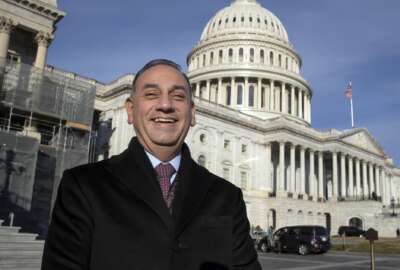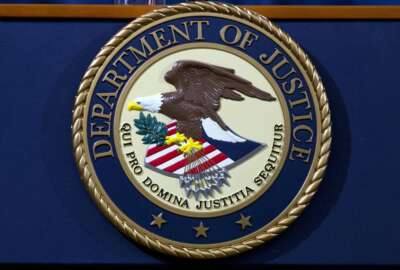Public trust in federal services more strongly influence by negativity
In today's Federal Newscast: Thrift Savings Plan participants can now manage their installment payments in My Account. The General Services Administration is asking...
- Good customer experience can drive better trust in government, but there's a catch, according to a D.C.-based nonprofit, nonpartisan organization. Negative experiences with federal services have a stronger influence on public trust than positive ones. Research from the Partnership for Public Service shows that just 64% of those who have positive experiences with government said they trust it too, while 34% do not. That means positive experiences don't always translate to more trust. The Partnership said more research is needed to explore the connection, and there's likely more going on behind the scenes that's driving continual low trust in government.(Connecting the dots between the customer experience and trust in government - Partnership for Public Service)
- Gil Cisneros, the Pentagon's undersecretary for personnel and readiness, will step down in September. Cisneros came under criticism from Congress for abruptly ending a new travel site to be used exclusively by the Defense Department's personnel. The MyTravel program was into its fifth year of development, at a cost of tens of millions of dollars. Also during his two-year tenure as DoD's chief personnel officer, Cisneros oversaw the creation of the DoD chief diversity officer position and the adoption of an adviser for diversity, equity and inclusion within each military department. The diversity programs drew criticism from some members of Congress who want to see the programs repealed.(Cisneros to leave Pentagon in early September after controversial tenure - Federal News Network)
- General Services Administration is asking whether another change is required in the way agencies buy cloud services. GSA has taken the first step to consider giving agencies relief from what industry calls an overly restrictive approach to buying software-as-a-service capabilities through the GSA schedule contract. In a new request for information, GSA has asked industry to provide insights into commercial practices for buying SaaS in a subscription based model. The current approach requires agencies to pay in the arrears, which can drive up costs by as much as 20%. GSA said the RFI responses will be used to explore options to align the IT Multiple Award Schedule with industry practices for pricing and invoicing term-based software. Responses to the RFI are due by Aug. 23. (GSA publishes cloud buying RFI - BUY.GSA.GOV)
- The Office of the National Cyber Director has issued its big cyber workforce goals. The White House wants agencies to lead the nation in using skills-based hiring for cybersecurity positions. That’s one part of the new National Cyber Workforce and Education Strategy released yesterday. The Office of Personnel Management is now taking steps to revise work roles across cyber, artificial intelligence and data positions to use skills-based assessments, rather than just relying on degrees and certificates. Under the new strategy, White House officials and lead agencies will also consider the establishment of a new Federal Cyber Workforce Development Institute to provide standardized training across government.(Agencies to ‘remove barriers’ to cyber hiring under new workforce strategy - Federal News Network)
- The Postal Service is facing a slew of questions from lawmakers over some of its recent changes. Rep. Jared Huffman (D-Calif.) and Rep. Melanie Stansbury (D-N.M.) are asking USPS and its regulator to explain why post offices in their districts are suddenly charging much higher rates for PO Boxes. And Rep. Bill Huizenga (R-Mich) is pressing USPS for answers on plans to consolidate processing-and-delivery operations in Southwest Michigan. Huizenga asked whether the changes will impact the workforce and on-time mail delivery. (Huffman & Stansbury USPS letter - Huizenda USPS letter - Congressmen Jared Huffman & Bill Huizenda)
- The Defense Information Systems Agency is ready to move its zero trust effort to the next phase. DISA awarded an other transaction authority production contract to Booz Allen Hamilton to expand the Thunderdome program. The potentially five-year contract could be worth as much as $1.86 billion dollars. DISA said Thunderdome will harden the Defense Department's networks by employing network and resource access tools along with segmentation technologies. This production contract is the follow on to the $6.8 million prototype award DISA made to Booz Allen in January 2022.
- Thrift Savings Plan participants can now manage their installment payments in My Account. The Federal Retirement Thrift Investment Board said TSP users, once logged in, now have an on-demand option to stop existing installments and request new ones. But if participants stop their installments within fewer than 30 days of making a withdrawal or distribution request, they'll still have to wait that full 30 days before they can request installments again. And other changes, like changing federal tax withholding or managing rollovers, still require a call to ThriftLine, TSP's customer service center.
(Manage installment payments in My Account - Thrift Savings Plan)
- Space Command headquarters will make its permanent home in Colorado Springs, Colorado. The White House announced the decision on Monday, ending three years of rumors and speculation about whether the service would stay in Colorado or move to Huntsville, Alabama. The administration of former President Donald Trump planned to move Space Force to Alabama. When President Joe Biden was elected, he put the move on hold. Defense Department officials said the decision was based on the input of senior military leaders.
- Customs and Border Protection would be required to staff up under a bill advancing in the Senate. The Homeland Security and Governmental Affairs Committee approved the Securing America’s Ports of Entry Act last week. The bill would require CBP to hire at least 600 additional officers a year until its staffing needs are met. CBP has estimated that it has been short at least 1,000 officers in recent years. The Senate bill would also require the agency to evaluate potential infrastructure improvements at ports of entry.
- A bipartisan bill to simplify the process of applying for federal disaster aid is one step closer to becoming law. The Senate has sent the Disaster Assistance Deadlines Alignment Act to the House. The bill would give individuals a single deadline to apply for two of the Federal Emergency Management Agency’s major aid programs: Disaster Unemployment Assistance (DUA) and the Individuals and Household Program (IHP). The bill would require FEMA to give households up to 60 days to apply for the programs once a federal disaster has been declared. Senators Gary Peters (D-Mich.), Rand Paul (R-Ky.), and Marco Rubio (R-Fla.) are leading the bill.
Copyright © 2025 Federal News Network. All rights reserved. This website is not intended for users located within the European Economic Area.
Peter Musurlian
Peter Musurlian is a producer at Federal News Network.
Follow @PMusurlianWFED






